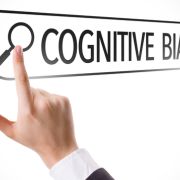SOME LIGHT-HEARTED NEWS

| In class today: 1) article on bias from Psychology Today 2) self-bias assessment. Take your time with this. Copy onto a doc to take. Make sure to hold on to this for tomorrow. REFLECT and consider what you read in the article. You will used this for a short reflective piece tomorrow I BiasWhat is bias?Bias is a natural inclination for or against an idea, object, group, or individual. It is often learned and is highly dependent on variables like a person’s socioeconomic status, race, ethnicity, educational background, etc. At the individual level, bias can negatively impact someone’s personal and professional relationships; at a societal level, it can lead to unfair persecution of a group, such as the Holocaust and slavery. What causes people to be biased?Starting at a young age, people will discriminate between those who are like them, their “ingroup,” and those who are not like them, “their outgroup.” On the plus side, they can gain a sense of identity and safety. However, taken to the extreme, this categorization can foster an “us-versus-them” mentality and lead to harmful prejudice. What is an unconscious or implicit bias?People are naturally biased—they like certain things and dislike others, often without being fully conscious of their prejudice. Bias is acquired at a young age, often as a result of one’s upbringing. This unconscious bias becomes problematic when it causes an individual or a group to treat others poorly as a result of their gender, ethnicity, race, or other factors. Can a person be unbiased?
Generally, no. Everyone has some degree of bias. It’s human nature to assign judgment based on first impressions. Also, most people have a lifetime of conditioning by schools, religious institutions, their families of origin, and the media. However, by reflecting critically on judgments and being aware of blind spots, individuals can avoid stereotyping and acting on harmful prejudice. How can you reduce bias?Telling people to “suppress prejudice” or racism often has the opposite effect. When people are trained to notice prejudiced or racist thoughts without trying to push them away, they are able to make a deliberate choice about how they behave towards others as a result. This can lead to less discrimination and reduced bias over time. |
Biases and Cognitive Errors

A category of biases, known as cognitive biases, are
repeated patterns of thinking that can lead to inaccurate
or unreasonable conclusions. Cognitive biases may help
people make quicker decisions, but those decisions aren’t always accurate.
Some common reasons why include flawed memory, scarce attention,
natural limits on the brain’s ability to process information, emotional input,
social pressures, and even aging. When assessing research—or even one's
own thoughts and behaviors—it’s important to be aware of cognitive biases
and attempt to counter their effects whenever possible.
What is confirmation bias?
Mark your response to the following:
Positive | Negative | Undecided | Don't care | |
| Administrators | ||||
| Arabs | ||||
| Black Muslims | ||||
| Born-again Christians | ||||
| Buddhists | ||||
| Californians | ||||
| Catholics | ||||
| Chinese | ||||
| Communists | ||||
| Conservatives | ||||
| Democrats | ||||
| Doctors | ||||
| Egyptians | ||||
| Elderly | ||||
| Football | ||||
| French | ||||
| Gays/lesbians | ||||
| Honor Society | ||||
| Iraqis | ||||
| Jews | ||||
| Jocks | ||||
| Ku Klux Klan | ||||
| Lawyers | ||||
| Liberals | ||||
| Muslims | ||||
| Nerds | ||||
| New Yorkers | ||||
| Protestants | ||||
| Republicans | ||||
| Russians | ||||
| Secretaries | ||||
| Socialists | ||||
| Sororities | ||||
| Southerners | ||||
| Teachers | ||||
| Texans | ||||
| Wealth | ||||
| Welfare | ||||
| Working class |



No comments:
Post a Comment